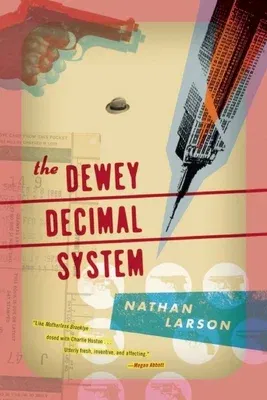After a flu pandemic, a large-scale terrorist attack, and the total
collapse of Wall Street, New York City is reduced to a shadow of its
former self. As the city struggles to dig itself out of the wreckage, a
nameless, obsessive-compulsive veteran with a spotty memory, a love for
literature, and a strong if complex moral code (that doesn't preclude
acts of extreme violence) has taken up residence at the main branch of
the New York Public Library on 42nd Street.
Dubbed Dewey Decimal for his desire to reorganize the library's stock,
our protagonist (who will reappear in the next novel in this series)
gets by as bagman and muscle for New York City's unscrupulous district
attorney. Decimal takes no pleasure in this kind of civic dirty work.
He'd be perfectly content alone amongst his books. But this is not in
the cards, as the DA calls on Dewey for a seemingly straightforward
union-busting job.
What unfolds throws Dewey into a bloody tangle of violence, shifting
allegiances, and old vendettas, forcing him to face the darkness of his
own past and the question of his buried identity.
With its high body count and snarky dialogue, The Dewey Decimal System
pays respects to Raymond Chandler, Dashiell Hammett, and Jim Thompson.
Healthy amounts of black humor and speculative tendencies will appeal to
fans of Charlie Huston, Nick Tosches, Duane Swierczynski, Victor
Gischler, Robert Ferrigno, and early Jonathan Lethem.
Nathan Larson is best known as an award-winning film music composer,
having created the scores for over thirty movies such as Boys Don't
Cry, Dirty Pretty Things, and The Messenger. In the 1990s he was
the lead guitarist for the influential prog-punk outfit Shudder to
Think. This is his first novel. Larson lives in Harlem, New York City,
with his wife and son.

